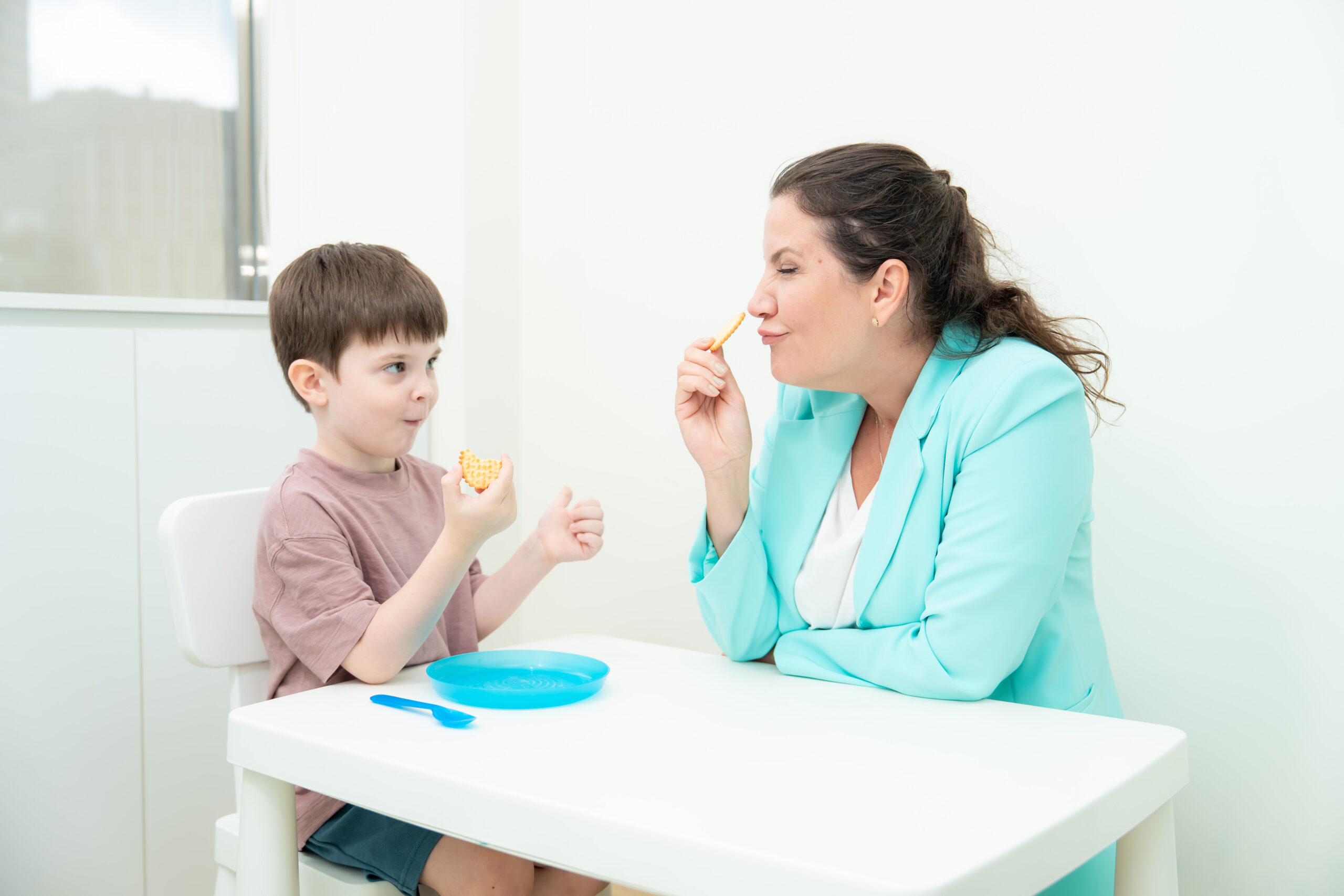
Initial Feeding Consultation/ Assessment
The SPOT Specialist Feeding Team understands that mealtime can pose unique challenges for some children. Our comprehensive Feeding Assessment is designed to provide you and your child with support and clarity regarding feeding difficulties.
During the assessment, both parents and caregivers are invited to join. We create a playful and welcoming environment where our experienced therapists can observe and engage with your child. This approach allows us to identify specific challenges your child may face, which may include difficulties with biting, chewing, swallowing, or sensory responses to different textures and smells.
Following the assessment, we will provide you with tailored recommendations to aid your child’s feeding journey.
Parent / Helper Coaching
At SPOT, we believe in empowering parents and caregivers with the tools they need to support their child’s feeding journey at home. Our Parent Coaching program is designed to provide personalised guidance, strategies, and support tailored to your child’s unique needs and challenges. This is typically offered online before and during meal time. Our Parent Coaching program is an invaluable resource to enhance your skills and confidence in helping your child overcome feeding challenges. Together, we aim to ensure that mealtime becomes a positive experience for you and your child.


Feeding Therapy Program
At SPOT, your child has the opportunity to work one-on-one with a dedicated team member or participate in a group feeding program alongside other children facing similar challenges, following the initial consultation/assessment. Our treatment approach is play-based and enjoyable, allowing children to explore different foods while expanding their dietary repertoire in a safe, supportive, and playful environment. Here, learning becomes a delightful adventure!
We Offer Services in Multiple Languages
English
Mandarin
Portuguese
Cantonese
Feeding is a basic developmental skill that is used every day to provide nourishment to one’s body. While this skill is second nature to most, it can be a difficult task for others.
The comprehensive paediatric feeding program offers a variety of services, including evaluation and an intensive 1:1 feeding program and group feeding programs.
